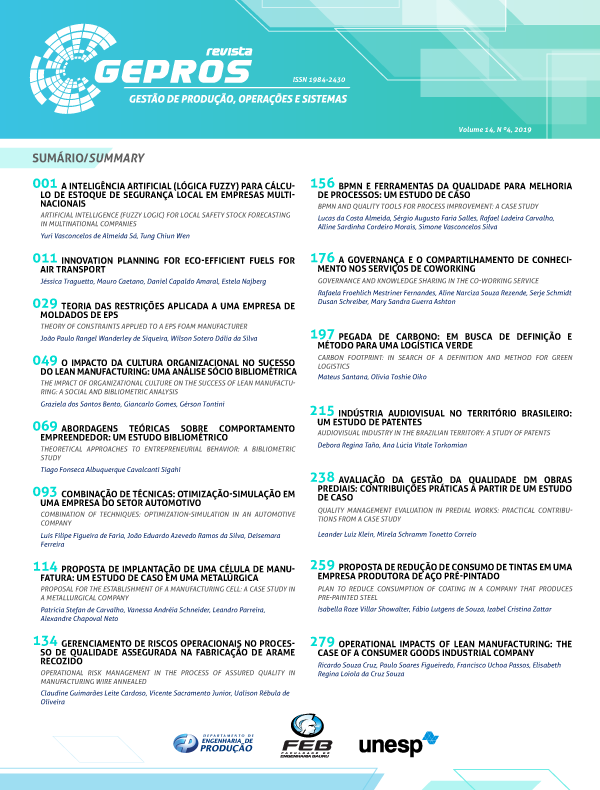Innovation planning for eco-efficient fuels for air transport
DOI:
https://doi.org/10.15675/gepros.v14i4.2271Abstract
It is anticipated that the next twenty years the air transport will present an increase of almost double the growth rate of world GDP. This accelerated expansion of the sector has caused some negative consequences, such as the significant increase in carbon dioxide emissions. The aviation industry has already committed in changing this scenario and the target is to halve CO2 emissions by 2050. To achieve this goal, it is necessary to planning eco-efficient aviation fuel, which allows the reduction by 80% of CO2 emissions. The identification of alternatives to this replacement has been carried out in different research groups; however, it is clear that the planning of innovation has been carried out not integrated manner. In this sense, this study seeks to fill this theoretical gap and to contribute to this issue proposing a management tool to guide innovation in this sector. From Delphi method, it was found that the proposed scheduling method, identified as IPMEF-AT, would be considered applicable to the context in which it is intended, the innovation planning of ecoefficient air transportation fuels. The result obtained demonstrates the viability of IPMEF-AT and suggestions of experts were used in order to improve it.
Keywords: Air transport. Eco-efficient fuel. Management of innovation.
Downloads
Published
How to Cite
Issue
Section
License
O(s) autor(es) do artigo autorizam a publicação do texto na revista e garantem que a contribuição é original e inédita, não estando em processo de avaliação em outra(s) revista(s). As opiniões, ideias e conceitos emitidos nos textos são de inteira responsabilidade do(s) autor(es), não sendo a revista responsável por tais conteúdos.
Os editores da revista reservam o direito de efetuar ajustes textuais e de adequação às normas da publicação, caso necessário.
Os autores mantêm os direitos autorais sobre o trabalho e concedem à revista o direito de primeira publicação, sendo o trabalho simultaneamente licenciado sob a Attribution 4.0 International (CC BY 4.0), o que permite o compartilhamento do trabalho com reconhecimento da autoria e publicação inicial nesta revista.
Os autores têm autorização para firmar contratos adicionais, separadamente, para distribuição não-exclusiva da versão do trabalho publicada nesta revista (ex.: publicar em repositório institucional ou como capítulo de livro), com reconhecimento de autoria e publicação inicial nesta revista.












